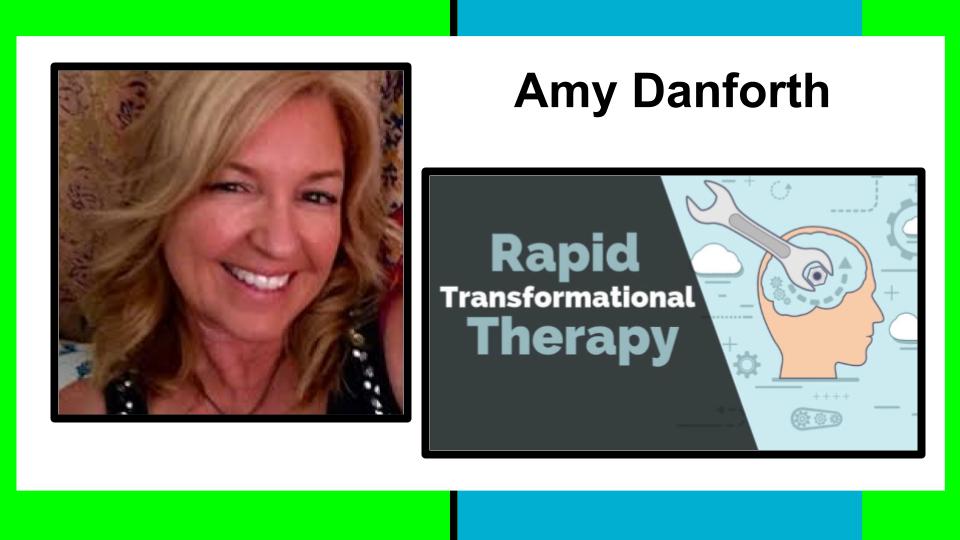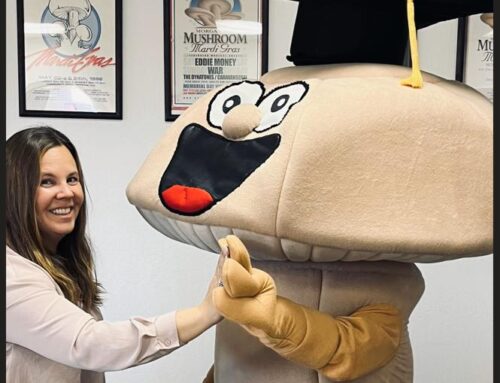The subconscious mind is where 95 percent of our past experiences live
![]()

By Kathryn Airoldi Walker

Kathryn Airoldi Walker
Amy Danforth went from a 9-to-5 office job to helping people overcome issues that negatively impact their lives, such as anxiety, depression, phobias, and procrastination. She decided to make the change to work with clients using Rapid Transformational Therapy in 2020 at the start of the COVID-19 pandemic when many people made career changes.
RTT is a therapeutic approach that uses powerful, evidence-based techniques to provide people with the tools they need to make positive changes.
When I recently met with her the first thing I noticed was her very kind demeanor, warm smile, and a calming voice that helps put clients at ease.
“I came to realize there was this method and technique to understand the root cause of issues by tapping into the subconscious mind, specifically in the formative years of our core belief systems, which is much quicker than traditional counseling,” said Danforth, who has degrees in psychology and behavioral science from the University of New Hampshire.
She recently graduated from a two-year program at the Rapid Transformational Therapy school founded by Marisa Peer who has won many awards as a counselor. Peer was mostly recognized for creating the RTT method and understands how the subconscious mind works, which is where 95 percent of our past experiences live. She has found that this seems to be the most efficient way to discover what is causing people’s issues.
According to Amy, we carry around imprinted beliefs and perceptions about the world and ourselves, not realizing how it’s affecting us. She has found that instead of years of talk therapy that may never get to the cause, this method can uncover issues right away and reframe them so they are transformed into new perspectives with immediate relief.
“I take the client through several levels of investigating the issue, interpreting what came up for them, interrupting the old beliefs and patterns, then reframing them into new and updated beliefs because the old one no longer serve them,” she said. “We carry around those imprinted beliefs and perceptions about the world and ourselves not realizing how it is effecting us.”
 The last part of the session involves the transformation, where she makes a completely positive recording. Clients will listen to their recording for at least 21 days, which is the amount of time it takes to create new neural pathways, and solidify new thought patterns. Sessions last about 30 minutes to two hours and are primarily conducted through a Zoom call in the comfort of your home where you can wrap up in a blanket and have a warm cup of tea or whatever makes you feel safe, relaxed and where you will not be interrupted.
The last part of the session involves the transformation, where she makes a completely positive recording. Clients will listen to their recording for at least 21 days, which is the amount of time it takes to create new neural pathways, and solidify new thought patterns. Sessions last about 30 minutes to two hours and are primarily conducted through a Zoom call in the comfort of your home where you can wrap up in a blanket and have a warm cup of tea or whatever makes you feel safe, relaxed and where you will not be interrupted.
In her spare time she enjoys hiking, gardening, concerts and hanging out with her two adult children and grandchild.
Amy finds the most exciting part of her job is to see that “aha” expression and see the lightness her client feel after a session.
Contact Danforth at (408) 710-9712 or email her at [email protected].
Kathryn Walker Airoldi is a freelance writer and Realtor with Coldwell Banker Realty. Contact her at (408) 722-6275.






